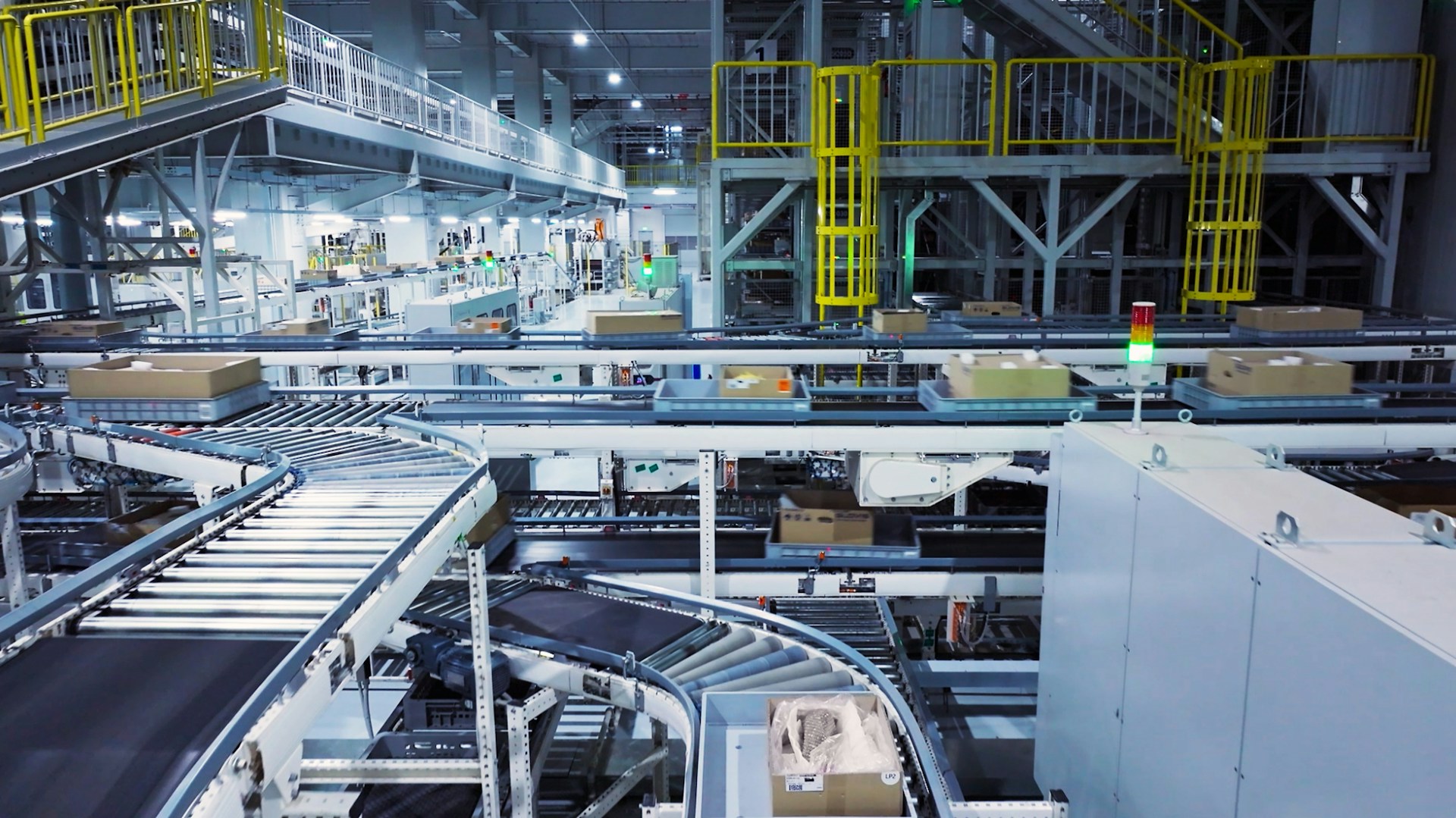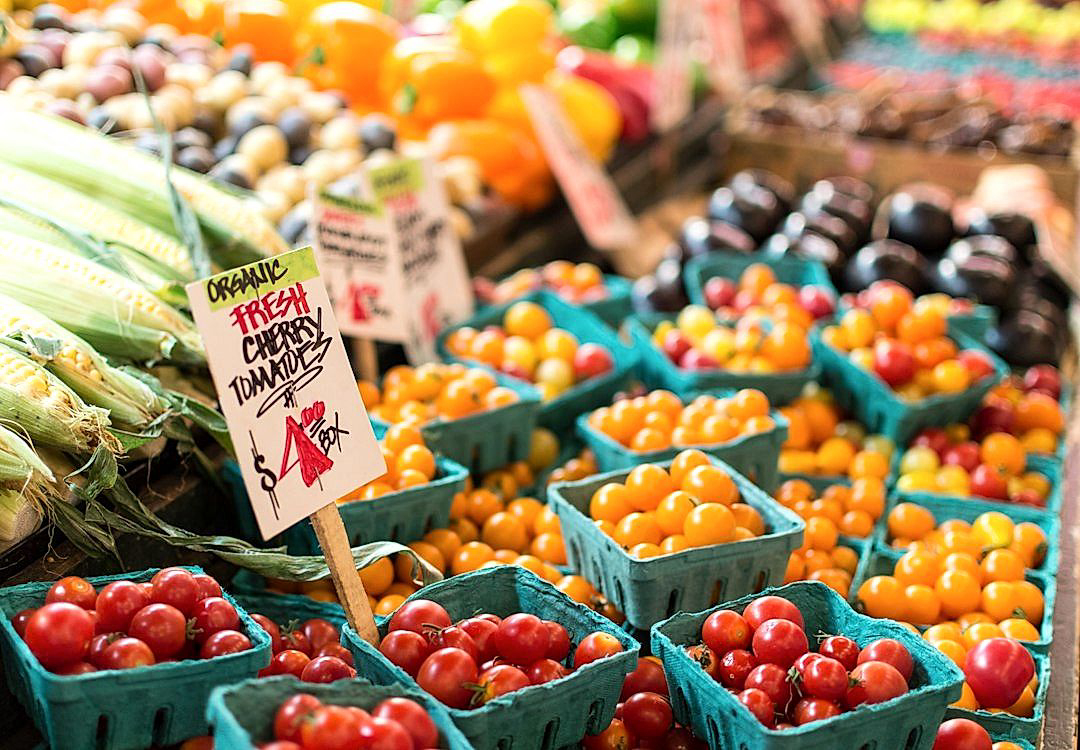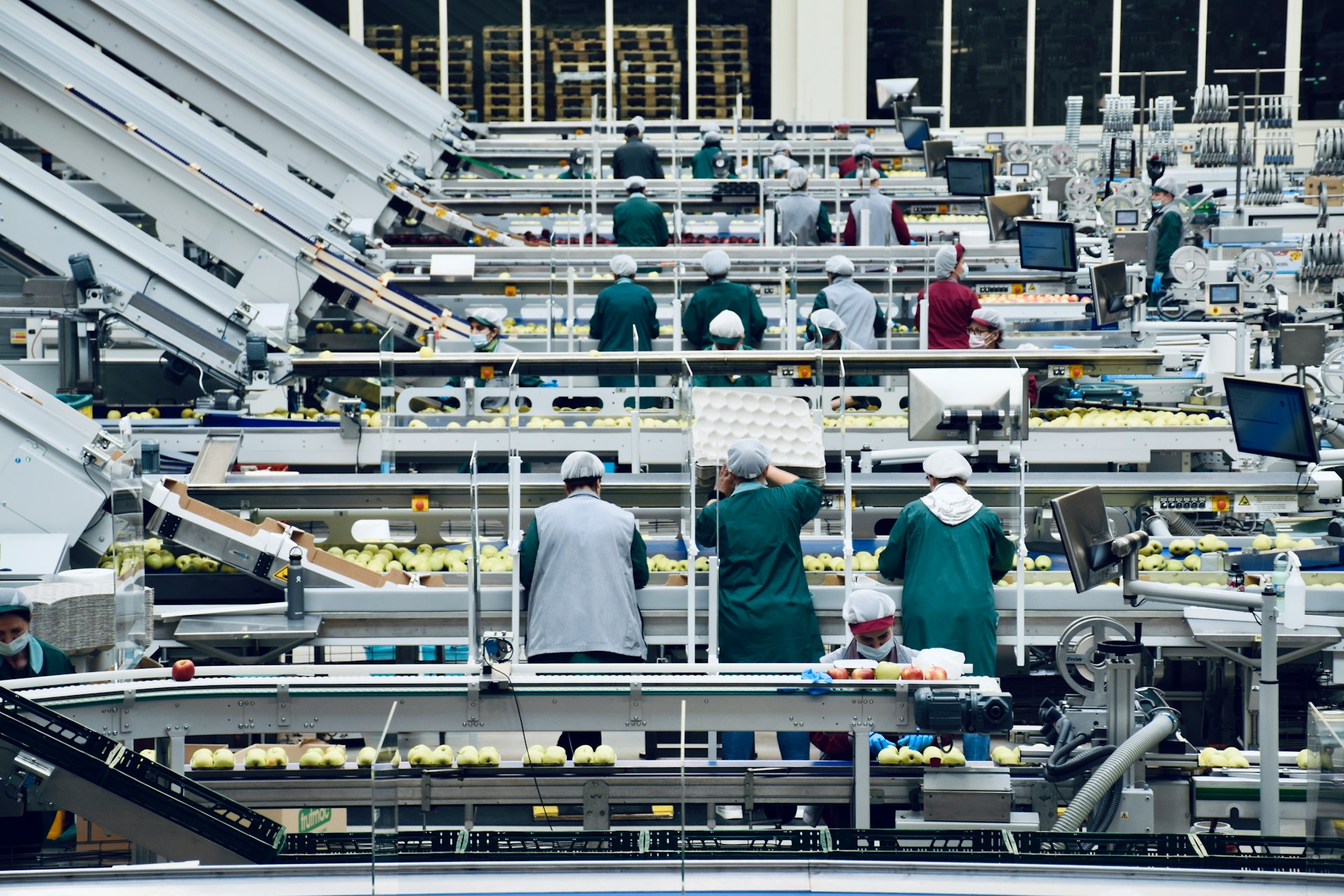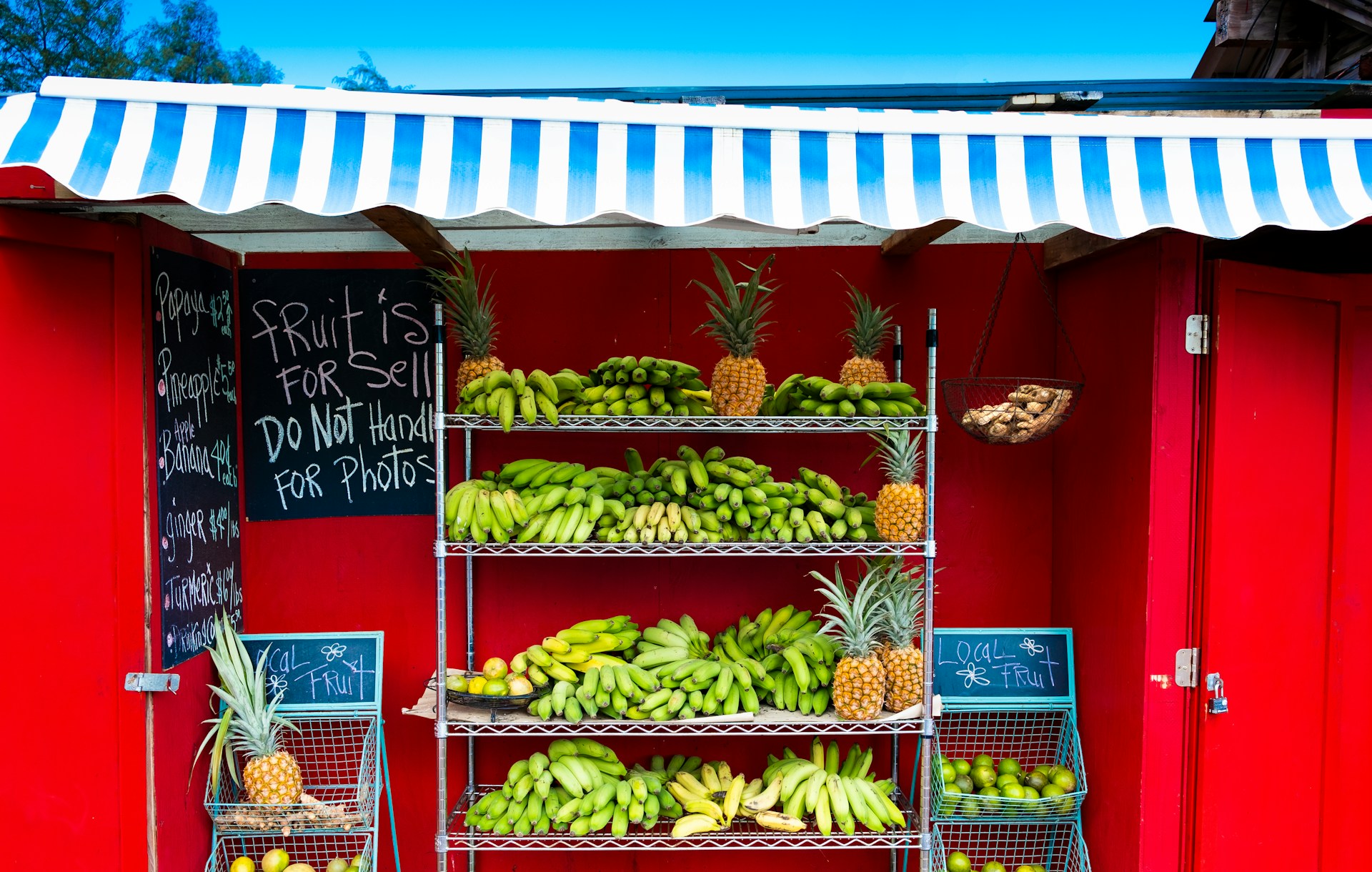Advancements in artificial intelligence (AI) are reshaping various industries, streamlining operations and increasing efficiency.
The fruit and vegetable sector is no exception.
One key area revolutionized by AI technology is the sorting and packing process.
Traditional methods can be laborious and prone to human error.
Today, we look at how AI tools are radically changing this landscape, enhancing speed, accuracy and cost-effectiveness.
These changes are not just transformations; they may be the future of the produce industry.
Ai Tools Transforming Produce Sorting & Packing
1. ABBYY FlexiCapture for automated invoice sorting.
The relentless advancement of artificial intelligence (AI) has brought us exciting new tools that can drastically transform the way we do business. One such AI tool is ABBYY FlexiCapture, a cutting-edge intelligent data extraction platform specially designed to assist in automated invoice sorting.
The brilliance of ABBYY FlexiCapture is that it dramatically reduces the amount of manual labor involved in managing invoices, thereby boosting the business’s overall efficiency. By leveraging machine learning, this powerful software can perform invoice sorting with such speed and accuracy that were previously unachievable.
ABBYY FlexiCapture is versatile. It can automatically sort invoices based on any parameters set by the user. For instance, the tool can separate paid invoices from unpaid ones, or categorize them by vendor, date, or any other criteria.
Anyone who’s worked with many invoices knows how taxing and tedious that endeavor can be. Thankfully, ABBYY FlexiCapture can easily manage high volumes of incoming invoices, helping to alleviate the stress of an overflowing inbox.
Aided by AI and machine learning, ABBYY FlexiCapture can accurately sort thousands of invoices in a fraction of the time it would take a human to accomplish the same task.
Beyond sorting, ABBYY FlexiCapture incorporates Optical Character Recognition (OCR) technology. This means the software can intelligently read and extract useful data from the sorted invoices. Once extracted, this data can then be used for further processing or analysis, thereby aiding overall business decision making.
ABBYY FlexiCapture not only streamlines your invoice management process, it also ensures top-level security. With integrated data encryption and user access controls, businesses can rest assured that their invoice data is protected from potential threats.
While ABBYY FlexiCapture’s primary function is to manage and sort invoices, the software is modular and flexible, meaning it can be fine-tuned to perform a multitude of data capture tasks.
What truly sets ABBYY FlexiCapture apart is that it learns and improves over time. With every use, the AI software’s learning algorithms continue to identify patterns and refine its own processes, making it even more effective for future tasks.
Key to the success of ABBYY FlexiCapture is its user-friendly interface. The system delivers comprehensive results in a clear, understandable format which even non-technical users can easily navigate.
Due to its high level of automation, ABBYY FlexiCapture significantly minimizes the occurrence of human errors in invoice sorting. This contributes greatly to improving accuracy and efficiency in the invoice management process.
Implementing ABBYY FlexiCapture is a simple process that requires minimal training. Its swift implementation means that businesses can start reaping the benefits of automated invoice sorting almost immediately.
It’s little wonder why ABBYY’s FlexiCapture is becoming increasingly popular among businesses of all sizes. From SMEs to multinationals, organizations are finding that this software is the ideal solution for modernizing their invoice management process.
In essence, ABBYY FlexiCapture is a transformative tool, effectively applying AI and machine learning principles to automate invoice sorting – a traditionally manual and laborious process. By doing so, this software addresses a key business need, while at the same time blazing a trail for the wider adoption of AI technologies in everyday business applications.
2. TOMRA Food’s Spectrim platform for fruit sorting
One of the advancements in AI technology in the realm of produce sorting is the Spectrim platform by TOMRA Food.
This tool integrates high-resolution imaging with learning algorithms to inspect fresh produce in real time and make sorting decisions with incomparable accuracy.
It revolutionizes the sorting process by bringing in a high degree of automation, enhancing efficiency, speed, and quality control.
Spectrim is designed to handle the complexity of various produce types, holding up to 300 objects per second and is applicable to a wide range of produce.
It leverages cutting-edge machine learning technology to accurately sort fruit and ensure only the highest quality produce makes it to the market.
This precision sorting helps to reduce manual labor, significantly decreasing production costs.
Thanks to its intelligent design, Spectrim can be easily integrated into existing packing lines without much hassle.
Consistent quality in sorted produce is assured, thanks to the machine learning capability of the platform that keeps on improving with time and experience.
Spectrim is capable of detecting not only external defects of fruits, but also those beneath the skin using Near-Infrared (NIR) technology.
A task that once required a huge workforce can be accomplished by this single machine with greater efficiency.
It also reduces produce wastage by ensuring minimal false rejects, thereby increasing yield and profitability.
In an industry where quality can’t be compromised, this machine stands out for its ability to maintain the highest possible standards.
Spectrim surely heralds a step up in the digitization of agriculture and is a shining example of how single solutions can drive monumental changes in the industry.
With the potential of applications in other agricultural realms too, Spectrim’s future looks promising.
It’s indeed exciting to see how AI tools like Spectrim are not just transforming but revolutionizing the fruit sorting and packing industry.
3. Compac’s InVision 9000 for produce inspection
Technological advancements in the field of artificial intelligence are rapidly changing industries, with agriculture joining the bandwagon.
Agricultural firms are now leveraging smart, automated systems to boost productivity – one such system is Compac’s InVision 9000.
This innovative tool forms a crucial part of the future of automatic fruit sorting, providing intricate produce inspection services.
Manufactured by Compac, a leading player and expert in post-harvest solutions, InVision 9000 operates based on the principles of machine vision technology.
The tool employs high resolution cameras and advanced software to assess and determine the quality of produce, leading to highly efficient sorting processes.
The InVision 9000 system is capable of inspecting the surface of each piece of produce in its entirety, identifying defects that may undermine the quality of the product, including those that are not easily visible to the naked eye.
It can even determine the internal quality of the produce by using transmittance technology.
The system possesses an extraordinary set of configuration options and user-friendly interface to cater different produce types, allowing the inspection process to be easily customized based on the specific needs of each farm or packing house.
Having the ability to categorize fruits according to their precise color, size, and shape makes the sorting process accurate and fast.
Thus, it increases not only the quality of the final product but also the overall productivity of the operation.
InVision 9000 is also highly durable thanks to its robust industrial design, offering a long-term solution for companies looking towards advanced technology in their operations.
Compac’s InVision 9000, with its unmatched accuracy and high levels of efficiency, plays an instrumental role in transforming the produce inspection processes in the agricultural industry.
As AI continues to progress, tools like the InVision 9000 will likely pave the way for additional advancements in produce sorting and inspection.
Much like other industries, agriculture is poised for even more transformation as AI integration continues to gain traction and revolutionize traditional processes.
InVision 9000 is proof that AI and automation bear a promising future for the agriculture industry, significantly improving both product quality and operational productivity.
4. EVK’s Hyper-Spectral Imaging (HSI) for packing
The EVK’s Hyper-Spectral Imaging (HSI) technology has revolutionized the way packing is conducted in the produce industry.
One of the salient features of this technology is its ability to capture broad spectral information for every pixel of an image or sequence of images.
It enables accurate analysis of the produce being packed, ensuring that only the best quality produce makes it to the final packaging phase.
The utilization of HSI technology in packing allows for the detection of external defects that are not visible to the human eye.
As such, it offers unparalleled precision and accuracy when it comes to sorting produce based on quality and physical attributes.
The HSI technology is particularly helpful in identifying problematic produce that could potentially affect the overall quality of the batch or cause spoilage.
The technology’s quick and efficient scanning capabilities mean that packing operations proceed with minimal interruptions.
The application of HSI technology optimizes the shelf life of produce by reducing occasions of packing compromised produce.
The use of this technology has led to significant improvements in the efficiency and effectiveness of packing operations.
It is worth noting that this technology is easily integrated into the existing packing infrastructure, hence its rising popularity in the industry.
Automation of the packing process using HSI has noticeably lessened the reliance on manual labor, leading to greater cost savings in the long run.
The HSI technology by EVK is also remarkably versatile, with potential applications in a wide variety of sectors beyond produce packing.
For example, the technology has been used effectively in the pharmaceutical and textile industries for inspection purposes.
Overall, the EVK’s HSI technology has truly revolutionized packing processes in the produce industry.
Continued developments and advancements are expected to further showcase the potential of this technology in transforming the packing aspect of the produce industry.
HSI technology optimizes the shelf life of produce by reducing occasions of packing compromised produce, significantly improving the efficiency and effectiveness of packing operations.
5. Clarifai’s Visual Recognition API for Produce Sorting
As the digital age progresses, more and more tasks are becoming automated — even the kind traditionally done by human hands, like sorting produce.
One such tool that is transforming this process is the Visual Recognition Application Programming Interface (API) from Clarifai.
Clarifai is a leading company in artificial intelligence and specializes in the advanced fields of machine learning and computer vision.
Their Visual Recognition API is revolutionizing the way produce is sorted in the agriculture industry.
The algorithm this tool uses is trained to discern and classify different types of fruits and vegetables based on several identifiable features.
This remarkable technology enables remarkable accuracy and speed in sorting produce that far outpaces manual processes.
Included in this API capabilities are the recognition of different colors and shapes, which are fundamental identifiers for many types of produce.
This ability to identify individual features rapidly and accurately is incredibly valuable in ensuring the produce is always at its best quality when reaching the consumer.
The API can also identify the level of maturity and quality of the individual produce, sorting out fruits and vegetables that may not meet the required standards.
All of these features work in synergy to increase efficiency and quality control in packing and sorting processes.
Thanks to platforms like Clarifai’s Visual Recognition API, produce sorting has become a highly automated and accurate process.
These advancements have drastically cut down the time taken for sorting and packing in the agricultural sector.
The introduction of these AI technologies has also considerably reduced the wastage that can occur in manual sorting.
Thus, not only does this technology increase efficiency and quality, it also contributes to a more sustainable food production system.
Clarifai’s Visual Recognition API constitutes a clear example of how AI tools are rapidly transforming the produce sorting and packing industry.
As AI continues to evolve and advance, it’s hard to imagine the heights to which it can take the agricultural industry.
The Bottom Line
Technological advancements in industry automation continue to revolutionize various sectors, significantly improving efficiency, accuracy, and productivity.
ABBYY FlexiCapture’s automated invoice sorting system offers an innovative solution for handling vast amounts of paperwork in businesses.
TOMRA Food’s Spectrim Spectrim platform and Clarifai’s Visual Recognition API are instrumental in enhancing effectiveness in fruit and produce sorting.
Completing the puzzle, EVK’s Hyper-Spectral Imaging (HSI) provides essential support in packing, and Compac’s InVision 9000 comes in handy for produce inspection.
Each of these tools brings a unique value proposition to diverse sectors, offering reliable options to streamline operations, reduce manual labor and human error, and boost overall business performance.




